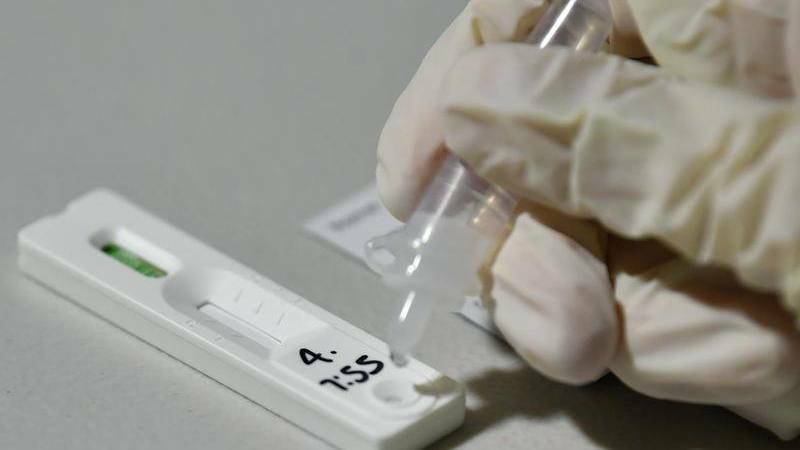
Planned discussions around subsidising rapid antigen tests will be another, for lack of a better word, positive step in the fight against COVID.
Subscribe now for unlimited access.
or signup to continue reading
Tasmania has started to move towards rapid antigen tests as a way to ease pressure on testing clinics in the state, and rightly so.
While there has been some inconsistency with the accuracy of the tests, it has always been just one tool in the kit, and better to have one tool at your disposal than none.
For those that can access the tests, a negative result within 10 to 15 minutes in the comfort of your home could mean visiting your sick relative with a little more confidence, or travelling to the family shack for the holidays with a little less concern over spreading the virus across the region on your way.
But the luxury of not waiting in a line at an official testing clinic for hours on end does not come cheap. A pack of five tests is roughly $50 at a chemist, or $25 for a two-pack.
While $25 for some may not seem like a big price to pay to ensure you don't have COVID, for many families it could mean skipping bread and milk that week.
The price can also increase for households if everyone needs a test - some individuals may even need to take a few tests back to back.
So in a family of two adults and a few children, purchasing rapid antigen test kits could end up costing as much as their weekly grocery bill.
And for many, this just won't be an option.
The state's free public testing sites will remain the only option for many families.
So despite a public push from the state government encouraging people to use RATs, any uptake of home testing is unlikely to occur on a widespread scale.
Just as flu shots are covered by Medicare for certain age groups to try and prevent the annual spread of the infectious and potentially deadly virus, and vaccines for COVID itself are free, any tool or method to try and reduce outbreaks should be available to anyone who needs them.
And this would not only benefit people in the community, but would help those coordinating the response to the pandemic.
Right now, a PCR test costs the government up to $100 per test.
Exposure sites are being listed up to a week late, and testing clinic lines are hours-long.
If there is a way to reduce the congestion and pressure on the system, then it should be a top priority.
Our journalists work hard to provide local, up-to-date news to the community. This is how you can continue to access our trusted content:
- Bookmark www.examiner.com.au
- Make sure you are signed up for our breaking and regular headlines newsletters
- Follow us on Twitter: @examineronline
- Follow us on Instagram: @examineronline
- Follow us on Google News: The Examiner













